QXCB71900E
- Outer diameter (D)
- 22 mm
- Inner diameter (d)
- 10 mm
- Width (B)
- 6 mm

Specifications
70. 72. 718. 719 SERIES Seris - QXCB71900E

QXCB71900E Angular Contact Ball Bearing Product Features and Advantages
High load capacity: It can withstand large radial and axial forces, and adopts high-strength steel and precision processing technology, with strong load-bearing capacity.
Good structural rigidity: The contact angle of the inner and outer rings is large, the structural rigidity is good, and stable operation is maintained under high load.
High positioning accuracy: The inner and outer rings have high matching accuracy, which can provide accurate positioning and centering functions.
High-speed operation performance: It has a low friction coefficient and high speed capability, suitable for high-speed operation applications.
Application: It has a wide range of applications in machine tool manufacturing, automotive industry, aerospace, motors and generators, robotics, medical equipment, automation equipment and other fields.
QIBR - QXCB71900E Angular Contact Ball Bearing Optimization
Optional Contact Angles: Depending on the operating conditions, different contact angles can be selected, such as 15°, 18°, 25°, or 40°.
High-Performance Materials: The bearing materials can be replaced according to different operating conditions, with options like SKF III, ZGcr15, high-purity bearing steel, ceramics, stainless steel, and other materials.
Grease Replacement: Select the lubrication based on the bearing's working requirements, such as LUBCON L252, Multemp SRL, or KLUBER ISOFLEX NBU 15.
Process parameter optimization: Optimize the processing parameters, such as grinding speed, feed speed, cutting depth, etc. to improve processing efficiency and quality.
More customization: QIBR can design and optimize the bearing according to customer requirements for drawings and bearing working conditions.
QIBR - QXCB71900E Angular contact ball bearing quality control
Dimension measurement: Use a variety of professional high-precision instruments to measure multiple dimensions of the bearing, with a maximum accuracy of 0.001mm.
Rotation accuracy: Use a micrometer to measure small flaws or deviations on the bearing surface, with a measurement accuracy of up to 0.001mm.
Hardness measurement: Use a hardness tester to measure the surface hardness of the bearing, with a measurement accuracy of up to ±0.5HRC.
Metallographic analysis: Use a professional metallographic microscope to analyze the internal metallographic structure of the metal.
Geometric tolerance: Use a profiler to measure the bearing geometry and relative position.
Noise monitoring: Vibration during operation is monitored by a vibration meter to obtain noise data.
Raw material control: Steel and parts are purchased from suppliers certified by ISO 14001 to ensure product stability and promote sustainable development.
Features & Benefits
Angular contact ball bearings are more suitable for high-speed running occasions, they could carry both radial load and axial load. the axial load carrying capacity is related to the contact angle. The larger the contact angle, the greater the axial load that can be carried. The limiting speed of angular contact ball bearings is higher than other types of bearings of the same size. They are usually used in pairs, because they bear the effect of radial load and also produce axial force components. When working, the angular contact ball bearing can eliminate the internal clearance of the angular contact ball bearing due to the axial load after installation, which also relatively improves the rotation accuracy of the angular contact ball bearing.
